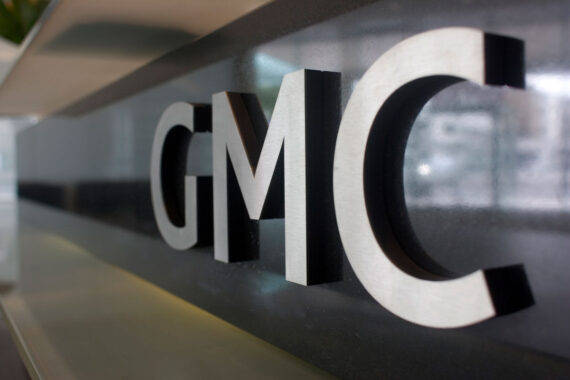GMC reference numbers for physician associates (PAs) will have a capital letter ‘A’ prefix in order to ‘differentiate’ them from doctors.
The regulator confirmed today that a consultation on rules and standards for PAs will start ‘soon’, in the spring, with regulation set to begin towards the end of the year.
This follows a controversial parliamentary process during which members of the House of Lords tried to kill legislation which formally brings associate roles under GMC regulation.
But the relevant order has now passed, and the doctors’ regulator is making preparations to include PAs and anaesthesia associates (AAs) on their public register.
They announced today that the A-prefix, which signifies ‘associate’, will provide a ‘clear distinction’ between the different regulated professions.
PAs will also be clearly labelled on the public register with a ‘prominent badge’.
In a post on X, the GMC said it is ‘vital patients know who is caring for them’, and showed an example of a PA’s entry on the register.
GMC director of registration and revalidation Una Lane said they have listened to feedback on PA regulation and have explored the approach other multi-professionals regulators take.
She said: ‘Using the A-prefix provides a clear distinction between the different professions we will regulate.
‘In addition to the prefix, we’ll also make sure we prominently label each profession type on our public-facing registers, and in search functions.
‘This means that in future when patients search our registers it will be very clear whether an individual is a doctor, a PA or an AA.’
Ms Lane added: ‘We will soon start our consultation on the rules, standards and guidance that will implement the legislation required for regulation to begin.’
In a message to doctors today, GMC chair Dame Carrie MacEwen said the consultation will also seek views on proposed changes to the regulator’s ‘fitness to practise decision making principles’ for doctors.
She also acknowledged that there are ‘undoubtedly differences of opinion’ about the role PAs and AAs should play in the NHS, but emphasised that regulation will ‘help assure patients’ that the roles can work safely.
Dame Carrie added: ‘As a multi-professional regulator we will recognise and regulate doctors, PAs and AAs as three distinct professions. PAs and AAs don’t have the same knowledge, skills and expertise as doctors. They are not doctors, and they can’t replace them.
‘They can however play important roles within multidisciplinary teams. Our approach to regulation reflects this.’
She urged doctors to ensure their interactions on the PA debate are ‘respectful and constructive’ both online and in person.
Earlier today, in what it described as ‘first of its kind’ guidance, the BMA set out a ‘scope of practice’ for what PAs should be able to safely do within general practice and secondary care.
The union has previously called on the Government to revert the names of PAs back to ‘physician assistants’, which were their ‘original professional titles’ before 2014.
However, health ministers confirmed that there are ‘no plans’ to change the titles, claiming it is ‘clear that PAs and AAs are not doctors’.
Earlier this year, the GMC indicated that membership fees for PAs could be half the fee paid by doctors once the profession comes under regulation.













The ‘A’ prefix as distinct from ‘No’ prefix?
Excellent.
And their annual fee?? Paid by their employer??
First you blur the line, then you move it. Who needs GPs nowadays anyway?!